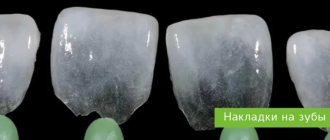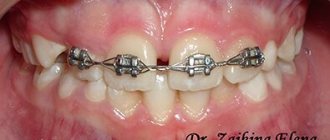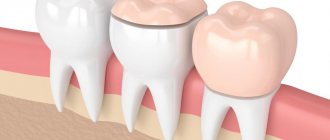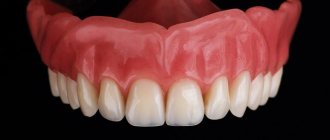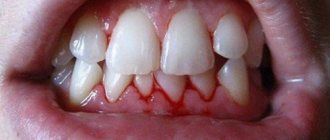Problems in a sensitive area (anus) are often an obstacle to prompt access to a medical facility. False shame, the expectation that everything will go away on its own, self-medication - these negative aspects can significantly worsen the patient’s condition.
Which doctor should I contact for hemorrhoids? Diagnosis, identification of symptoms, and most importantly, treatment of this disease is carried out by a proctologist.
The departments that provide assistance for pathologies in the rectum, colon, and anus are called proctological departments. The most modern term for a doctor in this specialization is coloproctologist.
Changes in terminology are associated with the expansion of the boundaries of the proctological medical field, which includes the diagnosis and treatment of not only the rectum, but also the large intestine.
What is the name of the doctor who treats eyes?
Eye doctors in our country are traditionally called ophthalmologists. What kind of doctor is this - an ophthalmologist and what are the specifics of his work? In fact, from the point of view of terminology, “ophthalmologist” and “ophthalmologist” are synonyms. The word "oculus" is of Latin origin and means "eye". "Ophthalmos" is also "eye", only in ancient Greek. Thus, there is no difference between the names of professions. Based on the etymology, you can understand what an ophthalmologist means - a doctor who treats eye diseases.
In Western European countries, the term “ophthalmologist” is used. Gradually, Russian clinics are beginning to actively implement it. It would be a misconception to think that an ophthalmologist is a different profession. He does the same thing as an ophthalmologist - he treats the eyes and organs of the visual system. Moreover, any specialist can have a narrower specialization: for example, there are ophthalmological surgeons, pediatric ophthalmologists, etc.
Medical examination with a proctologist or urologist (for men): how to prepare?
A timely visit to a proctologist and urologist for men is as important as an appointment with a gynecologist and mammologist for women.
An examination by a proctologist consists of interviewing the patient, visual examination of the anal area, and palpation of the anus. The evening before the medical examination with a proctologist, it is recommended to do a cleansing enema and also refuse dinner. If the appointment is scheduled for the second half of the day, you can have breakfast with very light foods in small quantities.
As for a medical examination by a urologist, it includes a doctor’s examination of the scrotum and penis, as well as palpation of the prostate through the anus. In addition, prostatic secretions may need to be collected for laboratory testing.
The rules for preparing for a medical examination with a urologist are simple: you need to abstain from sexual intercourse 2-3 days before visiting the doctor, perform a cleansing enema the day before and refrain from urinating for 1-1.5 hours for the examination.
What does an ophthalmologist treat?
Answering the question of what kind of doctor is an ophthalmologist and what he treats, we will list the most common diseases.
1. Glaucoma.
2. Cataract.
3. Refractive errors - myopia, farsightedness, astigmatism.
4. Strabismus.
5. Ptosis.
6. Retinal diseases (detachment, dystrophy).
7. Injuries to the eyes, eyelids, lacrimal glands.
8. Inflammatory eye diseases (conjunctivitis, keratitis, barley, etc.).
9. Color vision disorders.
10. Hemorrhages.
Many vision problems are caused by diseases of other organs. This means that an ophthalmologist also treats pathologies associated with hypertension, atherosclerosis, diabetes, difficult pregnancy or childbirth, and renal failure.
Additional Research
Children are prescribed the following tests as part of their medical examination:
- General blood analysis . Recommended for everyone after reaching 12 months. Most often, it is used to detect iron deficiency anemia. So, when hemoglobin “drops” below 100 g/l, it is necessary, firstly, to take a course of iron supplements, and secondly, to hold off on vaccinations, with the exception of the Mantoux test.
- General urine analysis . Aimed at identifying pathologies of the urinary system.
- Stool analysis - general and for helminth eggs. Allows you to exclude enterobiasis.
- Perinatal scraping . Makes it possible to detect pinworm eggs, which are located in the perinatal folds. If the diagnosis is confirmed, then treatment is carried out, then a new examination, and then vaccination.
- ECG . The simplest and most informative way to study the activity of the heart. It is painless, fast and safe. Using an ECG, heart rate, metabolic disorders of potassium, magnesium and calcium are detected, as well as a number of diseases, including angina pectoris, heart defects, metabolic disorders, etc.
When should you contact an ophthalmologist?
An ophthalmologist is an eye doctor. Therefore, you need to make an appointment with him if you experience any eye problems. It is better not to delay a visit to the doctor: some diseases that seem not serious, such as conjunctivitis, can have serious complications: inflammation of the cornea, formation of a cataract, decreased vision, etc.
Warning signs for which it is advisable to see an ophthalmologist are:
- pain, burning, severe itching in the eyes;
- redness of the eyelids or eyeball;
- swelling of the eyelids in the absence of objective reasons;
- fog before the eyes;
- double vision;
- painful reaction to light;
- change in the field of view (narrowing, loss of some areas);
- distortion of objects;
- decreased visual acuity;
- increased lacrimation;
- feeling that there is a foreign body in the eye;
- pus discharge from the eyes;
- any injuries.
There are also people who are at risk for developing eye diseases and pathologies. Regular visits to an ophthalmologist (or, in other words, an ophthalmologist) are prescribed for people suffering from diabetes and pregnant women. In addition, diseases of the kidneys, liver, endocrine, and cardiovascular systems can cause serious eye complications. It is recommended that people with a hereditary predisposition to the diseases listed above have their eye condition checked at least once a year.
Many regenerative processes are associated with age-related changes. People over 45 years of age need to be careful about their eyes and get doctors' recommendations on how to preserve their vision (gymnastics, vitamins, moisturizing drops, etc.). Knowing what an ophthalmologist is treating is also important for patients who are undergoing a long course of hormonal therapy. An excess of hormones can lead to exophthalmos (protrusion of the eyes) or diabetic retinopathy (the blood vessels of the fundus grow abnormally, the retina is damaged, and vision decreases).
For women (18+)
A doctor who treats female urological pathologies is called a “urogynecologist” or “urologist-gynecologist.” The most popular female urological problems are:
- cystitis;
- urethritis;
- overactive bladder.
Among the symptoms for which you should immediately visit a female urologist:
- frequent urination;
- pain, burning, cramping when urinating;
- feeling of incomplete emptying of the bladder;
- urinary incontinence (involuntary release of drops of urine when sneezing, coughing, laughing and other sudden movements).
Diagnostic methods
Now that we have figured out what kind of doctor an ophthalmologist is, let's look at what diagnostic methods he uses. The first step is a visual examination, but then the doctor can use a whole arsenal of modern diagnostic equipment to select the optimal treatment.
An ophthalmologist diagnoses eye diseases using the following methods:
- tonometry - measurement of intraocular pressure;
- refractometry - a study of refraction to identify myopia, farsightedness, astigmatism;
- visometry - a study of visual acuity familiar to everyone from childhood using tables with letters/images;
- color test to determine the ability to distinguish shades;
- ultrasound and optical biometry - study of the physical characteristics of the eye, the condition of the cornea and lens;
- ophthalmoscopy - examination of the eye using an ophthalmoscope, which allows you to examine the internal structures of the eye;
- biomicroscopy - study of the structure of the eye using a slit lamp;
- angiography - examination of the condition of the blood vessels of the eye by introducing a special dye;
- tonography - measurement of the rate of outflow of aqueous humor, necessary for glaucoma.
Gynecological examination during pregnancy
Pregnancy is a special period in the life of every woman. During this time, the number of visits and examinations that must be completed on a mandatory or voluntary basis increases significantly. This also includes standard and in-depth gynecological examinations (cytology, ultrasound).
The pregnancy check-up calendar in most European countries includes:
- Up to 10 weeks of pregnancy
. Standard gynecological examination plus cytology. Vaginal ultrasound of the genital tract is also recommended. The goal is to confirm fertilization and exclude ectopic pregnancy; - 11-13 weeks of pregnancy.
Gynecological examination, incl. determination of vaginal pH. The first mandatory ultrasound of pregnancy (the so-called genetic) is performed through the abdominal wall for a preliminary assessment of the anatomy of the fetus. Additionally, a genetic test (so-called double test) is recommended; - 15-20 weeks of pregnancy.
Gynecological examination. Genetic testing (triple test) is recommended; - 18-22 weeks of pregnancy
. Repeated mandatory ultrasound examination through the abdominal wall (so-called half) to assess the development of individual external and internal organs of the baby. - 21-26 weeks of pregnancy
. Gynecological examination; - 28-32 weeks of pregnancy
: Gynecological examination. The third mandatory ultrasound examination is to assess the development and position of the fetus several dozen days before birth; - 33-37 and 38-40 weeks of pregnancy.
Gynecological examination; obstetric examination (including assessment of pelvic size).
Gynecological examination during pregnancy
What does an ophthalmologist do and what treatment methods does he use?
The choice of treatment method depends on the specific disease. Typically, a general ophthalmologist will prescribe local or general treatment, eye exercises and physical therapy. But surgical intervention is carried out by ophthalmologist-surgeons - specialists who own modern minimally invasive equipment for performing operations on the eyeball
| Type of treatment | When is it appointed? | Methods |
| Local | Prescribed for diseases of the anterior part of the eyeball, as well as inflammation of the eyelids and lacrimal glands | Instillation of eye drops, application of ointments, lubrication of the ciliary edge of the eyelids, periocular injections. |
| General | It is used for severe eye diseases, especially those caused by infections and viruses. | Taking orally, intramuscularly or intravenously anti-inflammatory, antibacterial, antihistamine, strengthening drugs. |
| Surgical | Surgeries are prescribed in cases where conservative methods do not work. Also, surgical intervention allows you to permanently get rid of myopia, farsightedness or astigmatism (however, the procedure has serious contraindications). | Laser vision correction, laser treatment of glaucoma, trabeculectomy, lens replacement, scleroplasty, corneal transplant, etc. |
| Physiotherapy | Effective for improving blood circulation, reducing swelling, and activating biochemically active substances. As a rule, it is an auxiliary method and is used only in conjunction with general therapy | Electrotherapy, phototherapy, mechanical therapy and barotherapy. |
| Gymnastics for the eyes | Necessary to relieve tension and normalize blood flow to the eyeballs. Excellent for coping with dry eye syndrome. It can be effective in preventing vision loss. | Exercises according to U.G. Beitu, M.D. Corbett, Professor Zhdanov and many other types of gymnastics. |
Advantages and disadvantages
Disputes about the pros and cons of being a doctor do not subside. This is because most of them are subjective and even individual. If you have clearly defined goals, a thoughtful approach to getting an education, and a responsible attitude to work, negative aspects can be minimized, and positive ones can be multiplied.
Positive aspects of the profession:
- Demand – certified specialists can easily get a job in their field. The higher the qualifications and the more impressive the experience, the better the doctor can choose a place for himself. Medicine is one of the few fields in which you can work at almost any age;
- moral satisfaction - helping people, saving lives and gratitude from patients become the defining moment for many applicants;
- opportunities for career growth – with knowledge, hard work and ambition, a doctor is able to achieve significant heights, and there are different options for career development;
- chances for a high income - the salaries of doctors in government institutions are constantly growing and are regularly indexed. Salaries of employees of commercial clinics usually exceed 100 thousand rubles. If desired, a high-level specialist has the opportunity to get a job abroad;
- social benefits - doctors retire earlier and receive it in an increased amount;
- the benefits of knowledge and skills in everyday life - medical knowledge can be useful to every person at any time;
- prestige of the position, respect of others.
There are also many disadvantages to medical practice. Not everyone is able to cope with the increased mental and physical stress that begins during the training period. To start practice, you need to study theoretical material at a university for 6 years, complete an internship and residency. The profession of a doctor is not always safe. Often its representatives have to communicate with inadequate people and provide assistance in conditions that pose a danger to the doctor himself.
A senior health worker should also prepare for long working hours and the need to constantly improve and confirm their qualifications. Medicine does not stand still, so doctors have to constantly study new materials and attend seminars. For some doctors, it is difficult to communicate with patients, who often withhold important information and do not comply with prescriptions.
Contraindications
A doctor is not the best choice of profession for emotionally unstable, insecure individuals. The doctor should be calm, even a little distant and self-centered. Such character traits allow workers to deal with a medical problem without wasting time.
It is not recommended to consider medicine only out of greed for profit. Lack of interest in the profession itself does not allow such people to benefit society and achieve success. The presence of chronic diseases or bad habits is another potential contraindication.
Requirements for the profession
To master the profession of a doctor, it is not enough to acquire basic theoretical knowledge. The doctor must have: a good memory, the ability to make quick decisions, and an analytical mind. It’s good if they are complemented by resistance to stress and the ability to get along with people. The health worker must be patient and tactful so as not to aggravate the already difficult situation of the sick person.
Job responsibilities
The list of manipulations included in a doctor’s job description depends on his specialization. In some cases, the employee receives patients, makes diagnoses, prescribes medications or procedures. In others, he carries out the necessary manipulations or operations. In recent years, the work of a physician has largely consisted of filling out mandatory documentation, for which you also need to prepare in advance. The number of duties performed affects the employee’s salary level and his schedule.
Doctor's responsibility
When listing the disadvantages of being a doctor, you can add a high degree of responsibility to the list. A mistake made by a healthcare worker can cost the patient his health or life. Often decisions have to be made so quickly that it is not possible to analyze all the available information. An employee’s negligence or violation of ethical standards may result in administrative or criminal prosecution.
Doctor's powers
The scope of the doctor’s powers is determined by his position, place of work, and instructions. Usually this list includes the right to use the resources of a hospital, clinic, or other medical institution to provide care to patients.
Doctors have the right to prescribe medications to patients, prescribe manipulations, select dietary nutrition, and daily routine. Officially, all these provisions are not fixed, so they can change in accordance with the specifics of the situation.
Vision testing in children
You can explain to your children which doctor treats eyes and what another name an ophthalmologist is by making an appointment with the doctor. Vision testing in children should be carried out regularly: at a younger age, it will make sure that the child does not have congenital pathologies and the development of the visual organs is in accordance with the norm, and at an older age, it will prevent the development of myopia. The most vulnerable age for myopathy is 8-14 years, when eye strain increases sharply, and children are not yet accustomed to maintaining workplace hygiene.
Children with poor heredity should definitely visit an ophthalmologist.
In childhood, it is easier to identify and treat many disorders - astigmatism, strabismus, farsightedness, myopia, etc. Timely prescription of correction will avoid the development of other diseases - strabismus and amblyopia. It is advisable for children to see an ophthalmologist at least once a year. Ophthalmologists of the Lensmaster chain of salons specialize in refractive error and eye accommodation, so they can choose suitable glasses or contact lenses even for people with serious impairments. There are children's specialists who are ready to conduct a full vision examination of children from 7 years of age. You can make an appointment in Moscow, St. Petersburg, Rostov-on-Don and other cities of Russia through the online form.
Other specializations
Differentiation by gender and age alone was not enough. Therefore, doctors were also identified who specialize in the treatment of certain groups of diseases that are particularly complex and dangerous.
- Kidneys.
A urologist who treats the kidneys of men, women and children is a nephrologist. This doctor diagnoses and treats urolithiasis (kidney stones), pyelonephritis, polycystic kidney disease, hydronephrosis, renal failure and many other kidney diseases. A nephrologist deals exclusively with conservative treatment of the kidneys. If kidney surgery is needed, he refers you to a urologist-surgeon. - Oncology.
A urologist-oncologist is a doctor who provides conservative treatment and surgical removal of benign and malignant tumors in the organs of the urinary system. - Tuberculosis of the genitourinary organs.
Tuberculosis can affect the kidneys, ureter, bladder, and urethra. prostate. Phthisiourologists diagnose and treat such diseases. - Emergency care, including surgery.
Urology specialists working in emergency and emergency departments see patients with genital injuries, acute urinary retention (AUR), and bleeding from the urinary system. Urological surgeons use various types of operations in their practice - endoscopic, laser, transurethral, laparoscopic, retroperitoneal, robot-assisted, abdominal.
The relevance of a medical specialist in our time
Applicants are often interested in what specialties doctors work in private clinics, are in demand and are paid well. In reality, all doctors, regardless of specialty, are important and in demand in the labor market. A doctor is a popular, in-demand, highly paid profession: a good specialist will always be welcome in any medical institution.
Demanded professions of doctors
The most popular professions in the field of medicine in Russia:
- Dentist.
- Therapist.
- Pediatrician.
- Otolaryngologist (ENT).
- Radiologist.
- Ophthalmologist (ophthalmologist).
- Gynecologist.
- Neurologist.
- Functional diagnostics doctor.
- Surgeon.
- Anesthetist.
- Cardiologist.
- Urologist.
- Endocrinologist.
- Laboratory doctor.
Doctors specializing in dentistry, ENT, ophthalmologist, gynecologist, etc. are in demand due to the opening of many private medical institutions that provide services to citizens.
Features of the profession
A doctor is a highly intelligent and intelligent profession, which gives it a number of features. It is the presence of its representatives with the required personal qualities, skills and strict adherence to ethical standards that became the reason for respect for doctors. Separately, there are social and moral requirements for health workers, the fulfillment of which is considered mandatory.
Etiquette of a medical practitioner
The basic requirements for doctors are set out in the Hippocratic Oath, which every graduate of a specialized university takes. She mentions maintaining medical confidentiality, promising not to harm the patient, and not helping patients try to commit suicide.
A practicing doctor undertakes obligations to disseminate experience, train novice doctors, and show respect to colleagues. The fundamentals of medical ethics are enshrined in law and contain requirements for the appearance, behavior, and general description of a health worker.
Required professional skills and knowledge
A student who studies in the specialty “General Medicine” for six years at a university receives basic theoretical medical knowledge. Further work as an intern allows him to master practical skills and determine the direction of specialization. This is followed by a year of residency, during which the already certified doctor learns the intricacies of the chosen field of medicine. The training does not end there - in 100% of cases, a health worker is forced to improve his skills and knowledge throughout medical practice.
Personal qualities of a doctor
A successful doctor must be inquisitive, greedy for knowledge, and prone to constant personal and professional development. A good health worker has a high level of intelligence, he is attentive to the point of pedantry, and knows how to quickly remember and analyze information. Most doctors have to prioritize their careers over their personal lives, so they are usually not the most emotionally dependent people on their families. A representative of the profession should prepare for constant stress, the need to patiently listen to patients, and explain complex concepts to them in accessible words.
